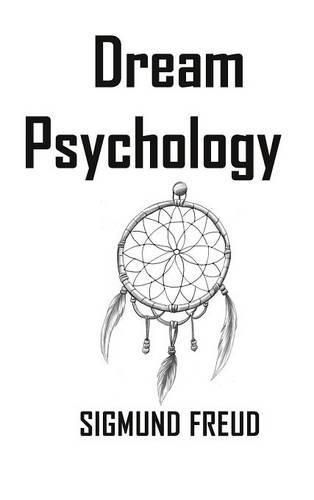Dream Psychology
Sigmund Freud

Dream Psychology
Sigmund Freud
This title is printed to order. This book may have been self-published. If so, we cannot guarantee the quality of the content. In the main most books will have gone through the editing process however some may not. We therefore suggest that you be aware of this before ordering this book. If in doubt check either the author or publisher’s details as we are unable to accept any returns unless they are faulty. Please contact us if you have any questions.
Dreams, in Freud’s view, are all forms of wish fulfillment - attempts by the unconscious to resolve a conflict of some sort, whether something recent or something from the recesses of the past (later in Beyond the Pleasure Principle, Freud would discuss dreams which do not appear to be wish-fulfillment). Because the information in the unconscious is in an unruly and often disturbing form, a censor in the preconscious will not allow it to pass unaltered into the conscious. During dreams, the preconscious is more lax in this duty than in waking hours, but is still attentive: as such, the unconscious must distort and warp the meaning of its information to make it through the censorship. As such, images in dreams are often not what they appear to be, according to Freud, and need deeper interpretation if they are to inform on the structures of the unconscious. Freud used to mention the dreams as The Royal Road to the Unconscious . He proposed the ‘phenomenon of condensation’; the idea that one simple symbol or image presented in a person’s dream may have multiple meanings. For this very reason, Freud tried to focus on details during psychoanalysis and asked his patients about things they could even think trivial (i.e. while a patient was describing an experience in their dream, Freud could ask them: was there any sign upon the walls? What was it? ). As Freud was focusing upon the biologic drives of the individual (a fact that alienated him from several colleagues of his like Breuer, Jung and Adler), he stated that when we observe a hollow object in our dreams, like a box or a cave, this is a symbol of a womb, while an elongated object is a symbol for penis. Due to these statements, Freud attracted much criticism from those who believed him a sexist or misanthrope , as he was alleged to have over emphasised the role of instinct, as though he believed people were wild beasts .
This item is not currently in-stock. It can be ordered online and is expected to ship in 7-14 days
Our stock data is updated periodically, and availability may change throughout the day for in-demand items. Please call the relevant shop for the most current stock information. Prices are subject to change without notice.
Sign in or become a Readings Member to add this title to a wishlist.


